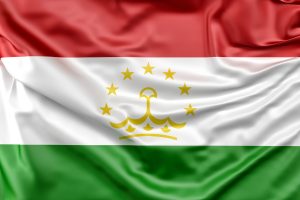Last month, a closed-door trial began in Tajikistan with eight defendants – including several politicians, a former foreign minister, and several other officials – reportedly accused of plotting a coup.
The trial, which reportedly began on November 14, is secret. According to RFE/RL’s Tajik Service, known locally as Radio Ozodi, no announcements were made by the court or government, and the families of the defendants and the media, let alone the public, are not allowed to attend. The exact charges are also unknown.
What is known is that over the summer several relatively high-profile public figures were arrested, starting with Saidjafar Usmonzoda on June 12.
Usmonzoda had been, until May, the leader of the Democratic Party. In Tajikistan’s highly constrained political system, the Democratic Party holds just one seat in the Assembly of Representatives, the lower chamber of Tajikistan’s parliament. He was ousted in an extraordinary congress of the party in early May and replaced by Shahboz Abror, a 34-year-old party member and according to Asia-Plus, an employee of the Dushanbe mayor’s office. Abror is also characterized in the media as a journalist and “owner of several print media outlets.”
Rustam Emomali, the son of Tajikistan’s President Emomali Rahmon, has been the mayor of Dushanbe since 2017. In 2020, he was elected chair of the National Assembly, the upper house of Tajikistan’s parliament, placing him second in line to the presidency.
Usmonzoda did not attend the congress, calling it illegal, and held on to his parliament seat in its immediate aftermath. Abror said Usmonzoda had been “inactive” and deemed his performance “unsatisfactory.”
Radio Ozodi noted that Usmonzoda was one of a “handful” of Tajik lawmakers who were accessible and engaged with the media.
On June 12, Usmonzoda was arrested. Two days later, Prosecutor-General Yusuf Rahmon (no relation to the president) requested that Usmonzoda’s parliamentary immunity be revoked. The authorities laid out a conspiracy to overthrow the government, claiming that in 2021 Usmonzoda had spoken via phone with Sharofiddin Gadoev, a member of Tajikistan’s exiled opposition National Alliance coalition and Group 24. According to state news agency Khovar, he “gave preliminary recommendations regarding the usurpation of state power in the Republic of Tajikistan.” Usmonzoda, the prosecutor-general claimed, allegedly sought $10 million from an unnamed “foreign government” to help fund the effort, as well as financial assistance from Islamic Renaissance Party (IRPT) head Muhiddin Kabiri. The plan also included the recruitment of 3,000 Jamaat Ansarullah fighters, presumably from Afghanistan.
The story features every one of President Rahmon’s personal bêtes noires and it’s likely this story, laid out in June in order to strip Usmonzoda of his immunity as an elected lawmaker, is at the heart of the state’s case.
Former Foreign Minister Hamrohkhon Zarifi and former parliament speaker Akbarshoh Iskandarov were also detained around June 12.
Zarifi, 75, served as foreign minister from 2006 to 2013 and then as ambassador to Japan until 2018. Iskandarov, 73, was once – for less than two months in 1992 – acting president of Tajikistan and more recently had worked at the Tajik Academy of Sciences following stints as ambassador to Turkmenistan and Kazakhstan.
Then Usmonzoda’s Democratic Party deputy Ahmadshoh Komilzoda was detained. A former journalist, Komilzoda had worked as a correspondent for Voice of American Tajikistan until 2011.
Finally, on July 18 RFE/RL reported that lawyer and First Deputy Chairman of the Social Democratic Party of Tajikistan Shakirjon Hakimov had been detained a week earlier.
Three other officials – former Foreign Ministry department head Abdulfaiz Atoi and two retired colonels from the State Committee for National Security, Nuramin Ganizoda and Jamshed Boev – were also arrested.
The eight men, most of them in their 60s and 70s, are on trial together. Given the trial’s closed doors, the specifics of the allegations against them are unknown. From the outside, however, the case seems strange. To varying degrees, all of the accused spent their lives serving the Tajik state, which has been dominated by President Rahmon and his family since 1992.
Usmonzoda ran for president in 2013 and came in last with 1 percent of the vote. He tried to register for the 2020 election but was denied. The Democratic Party he led for more than a decade was often referred to as a “pocket” party, a kind of nominal opposition within a system that did not brook genuine opposition. It seems complete madness for men with such intimate knowledge of the Tajik state to try and orchestrate a coup.
In an article for the Carnegie Endowment in August, Galiya Ibragimova wrote, “It’s hard to imagine…that the ‘coup’ has no connection to the regime’s preparations for the transition of power.”
For years, Rahmon has been rumored to be positioning his son, Rustam, to take over. The signs have been easy to see: successive plush appointments for Rustam, not the least of which was his 2020 election to chair the National Assembly. If Rahmon died tomorrow, constitutionally, Rustam would become president. Rahmon’s current term – his fifth – runs until 2027, when he will be 75.
Rahmon is arguably Central Asia’s last true Soviet dictator. He’s outlasted contemporaries in Uzbekistan (Islam Karimov died in 2016) and Kazakhstan (Nursultan Nzarbayev stepped down in 2019, though his cult of personality isn’t what it used to be), not to mention several different Kyrgyz presidents. Turkmenistan’s Gurbanguly Berdimuhamedov presents perhaps a template of sorts: He passed the presidency to his son in 2022 but within a year had restructured the government to put himself once again at the pinnacle of power.
No one lives forever, so eventually Rahmon will no longer be president of Tajikistan. Whether Rustam can hold the country together in the aftermath of his father’s resignation or death is unknown. The political arena of Tajikistan remains as murky as it has ever been, a largely empty field clouded with the mists of paranoia and fear.

































